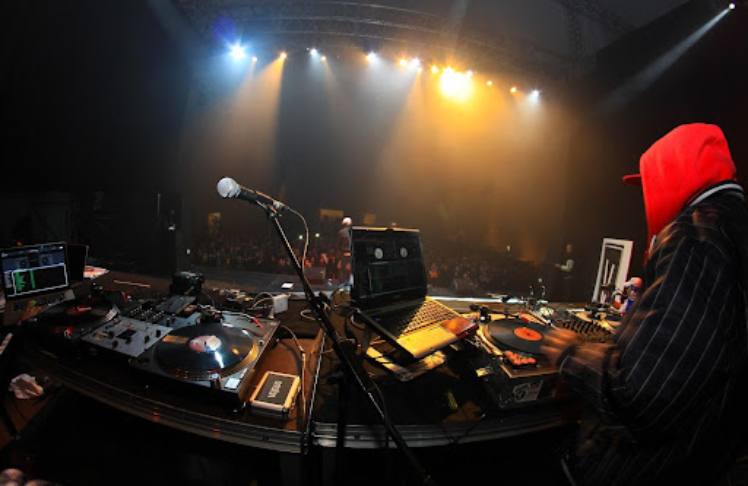
Hip-Hop Fans and Experts Comment on the Efficacy of The RAP Act and Rap Culture
Cory Utsey, HUNews Service
Those who believe that art should be separate from the artist are most often referring to the exploits of their “problematic faves,” but this concept remains especially relevant when considering how certain art forms and their proprietors face demonization.
The case against rapper Young Thug and the Young Slime Life (YSL) label, which began the week of Jan. 9 in Atlanta’s Fulton County, has garnered much attention and renewed arguments about lyrics being used against rappers in criminal court cases, therein begging the question of whether lyrics should be seen as separate from an artist’s lifestyle.
Thug and other affiliates of YSL are accused of violating Georgia’s Racketeer Influenced and Corrupt Organizations (RICO) Act. The grand-jury indictment of over 80 pages alleges 182 instances of involvement in gang activity, including murder. Evidence includes “SLIME” labeled clothing and accessories, social media posts and song lyrics. The phenomena of using lyrics as evidence in court is nothing new, as the likes of Snoop Dogg, Mac Phipps, 2 Live Crew and Tay-K have all had lyrics referencing violent acts used against them, according to XXL.
The recently introduced Restoring Artistic Protection Act, or “RAP Act,” aims to address this issue. Presented to the House of Representatives by Congressmen Jamaal Bowman, D-N.Y., and Hank Johnson, D-Ga., the RAP Act seeks to protect artists from having their song lyrics used as legal evidence in criminal cases.
David F. Green Jr., Ph.D., who is an expert in African-American rhetoric, critical pedagogy and hip-hop, believes that the RAP Act could certainly put structures in place to ensure that rappers can continue their modes of creative expression without threat of facing jail time. Yet, when considering the larger cultural perception of hip-hop and rap culture, he believes that the RAP Act is not enough.
“It doesn’t address the larger kind of social issues that contribute to these feelings, to these experiences, to the targeting that is occurring,” said Green, an associate professor of English and the director of First-Year Writing at Howard University. “What needs to happen is, as with everything, a kind of multi-pronged approach, one that raises public awareness and public consciousness of the ways that these things are discriminatory,” he explained. “There also needs to be a stronger understanding of how certain cultural practices have come about historically.”
Green says that hip-hop, as an art form born out of response to the marginalization of Black and brown communities, has always faced scrutiny. While the tone and themes of hip-hop and rap music have changed over time, the view of the culture remains monolithic – especially in the United States, he added.
“People are listening to various forms of hip-hop across the world for various means,” he said. “It is only in America where it still kind of holds this demonized kind of position, where we can honor a hip-hop artist at various award shows but in the same breath come to view them or believe them to be capable of certain acts or certain behaviors just because of their music.”
With regard to separating the art from the artist, one edge of the sword ensures the art remains authentic, giving the artist an outlet to express themselves and their understanding of the world. On the other edge, though, there exists the idea that art often serves as a reflection of the person who creates it. Therefore, separating the two potentially stifles the ability to interrogate the impact of the work and the moral standing of the artist.
Hip-hop and rap music are especially susceptible to negative perceptions, as critics of the art form and its resulting culture often cite the themes of violence, toxic masculinity and excess of wealth as morally questionable. In the court of public opinion, there exists the question of whether the culture is acceptable. But in the court itself, there exists the question of whether the lyrics that uphold the culture should be used as evidence in criminal cases. As a braggadocious genre by nature, artists often embellish the details of their experiences, but Green asserts that the use of song lyrics as evidence in court cases is problematic.
“A large part of hip-hop music is about the playfulness,” he said. “It is about the remixing of those experiences to present it in a way that’s both palatable and a type of either storytelling or a type of bragging rights. [It] is not meant to be taken as a kind of word-for-word personal testimony.”
Joshua Jackson, a senior television and film major and Afro-American Studies minor, maintains a similar sentiment, stating that lyrical content is not always factual.
“There’s no way to really know if the lyrics are based on fact,” Jackson said. “There are a lot of rap songs where lyrics are made up to cater to certain audiences or to the artist’s brand.”
Asia Alexander, a sophomore journalism major and political science minor, believes that the use of song lyrics as evidence in criminal cases might be valid depending on the scope of the alleged crime.
“Do I think it should be used without properly investigating? No, absolutely not,” Alexander said. “But I do think that it should be used [when] it’s dealing with somebody’s child that has been slaughtered. But also, it’s art. So how are you to tell an artist that they can’t express themselves?”
Regarding the overall perception of hip-hop, Alexander agrees that it is often seen in a negative light. However, she believes that the narrative is changing, especially with the uptick in female rap artists.
“I was listening to this NPR thing, and they were talking about Lil Kim and how provocative she was back in the day,” she said. “Now it’ s just like everybody’s saying the B-word and P-word. Everybody’s so open and free about everything.”
There is no single answer regarding the separation of art from the artist – or in this case, the separation of rap lyrics from the actions taken by rappers. But hip-hop remains an essential part of the larger culture, housing the ability for artists and listeners alike to challenge their perceptions of the world around them.
“Hip-hop is a broad kind of community, and it houses many perspectives and opinions,” Green said. “Many of those are valuable to how we think about our current democratic state – certain ideas about citizenship, and people’s beliefs about their right to full citizenship. That is their right to be able to perform and act and behave as their white counterparts in different spaces with all those rights entailed. Hip-hop is vital to our democratic hopefulness.”
Cory Utsey is a reporter for HUNewsService.com and covers music.















